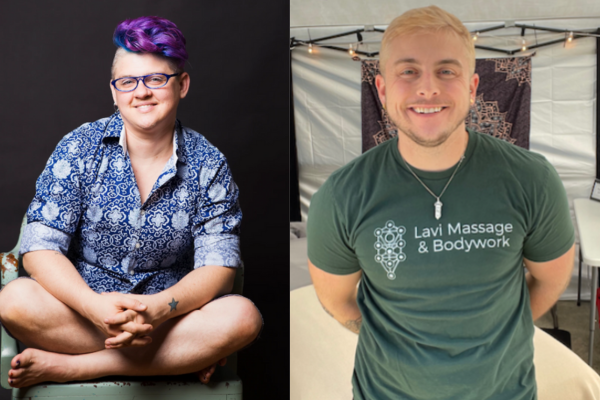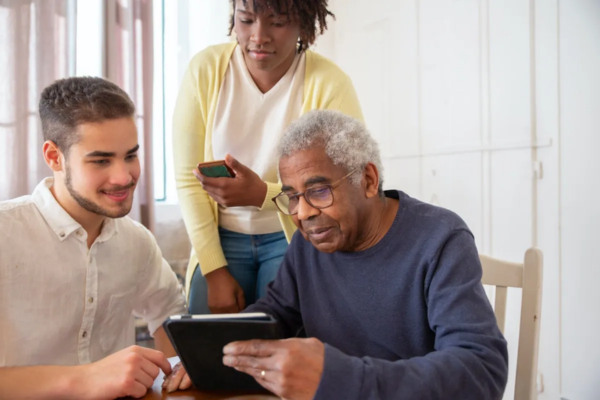
All Come Together: The CooLots
June 3, 2016
Photos: Black Pride Unleashed DC Rooftop Party
June 8, 2016Making optimal choices about substance use through pride and beyond
Summer is here and Pride season is in full effect! For many LGBTQ folks, this is a time of celebration, and celebrating often means more drinking and recreational drug use. If you’re planning to use or drink, how can you keep the party going while minimizing the headaches? Pride events can also be challenging to navigate for people who are trying to avoid drugs and alcohol. Because drinking and using can be so normalized in our community, they can also be very hard to avoid.
So whether you intend to fully partake during your Pride season and want to remember it fondly (which means being able to remember it at all), or whether you’re interested in the sober fun route, this kind of Pride Guide is just for you.
Harm Reduction Approaches For Substance Use:
• Talk about it. Let’s all do our part to take care of ourselves, our friends, and our communities by taking the shame out of the conversation when it comes to substance use and focus on solutions that work.
• Plan ahead to avoid driving. Bite the bullet and get a Lyft/Uber or cab if you have to. Get a hotel room for the night or ask to crash after the party. Paying for a room or a really expensive cab ride still beats several thousand dollars in fines, penalties, lawyer fees, time from work, costs of treatment classes, as well as the cost of jail time and having a criminal charge on your record for getting a DUI…not to mention risking your safety and others’.
• Ask yourself how you feel before you indulge. If you’re upset, you’re liable to use more. Being mindful could make a difference in how you pace yourself.
• Eat and hydrate. Alcohol/drugs dehydrate you and getting drunk/high can make people forget to eat or drink water. Eating before you drink and having non-alcoholic liquids between beverages will pace intoxication and help prevent blackouts, poor decisions, and gnarly hangovers.
• Track your usage. You’re more likely to think about that next hit or drink if you remember how much you’ve already had. In fact, there’s probably an app for that.
• Pick your poison, and your method, wisely. Shots double/triple your drink count in minutes. Decide on a limit and have a planned response to refuse shot offers. Choose mixed drinks that have a high ratio of other non-alcoholic fluids to liquor, or stick with beer or wine. Clarify to your bartender that you want a bit more soda added to your rum, even though you appreciate the generous pour. For drug use, consider switching your method (ingesting, snorting, smoking, IV, etc.) to slow down how high you get.
• Be cautious about mixing substances. Mixing alcohol with GHB, benzos, or opiates is risky. All of these substances slow down, and in high enough doses, will stop your breathing or induce a coma or a seizure. Using stimulants with downers could mask how much you’ve actually taken, which increases risk of overuse/overdose. That hit of cocaine may make you more alert, but it’s not going to decrease your blood-alcohol level. There are other drugs to consider here, so educate yourself on how drugs work and interact to avoid risky combinations and dosing.
• Empower yourself. What can you do to put more, rather than less, control in your hands? Have your own stash. Have your own clean works. Do the dosing on your own, rather than letting someone else do it. Bring safe-sex supplies with you.
• Be a master manipulator. Harm reduction is also about changing circumstances to limit negative consequences. Use with people you know instead of strangers. Don’t leave alone, or have a friend check on you after a period of time. Are certain people or places more likely to set things off in a bad way? Take a limited amount of cash with you rather than having that open tab all night. Have strategies to prevent sending that angry text to your ex, or from receiving that tempting text from that last hook-up that got out of hand.
• Have an emergency plan in mind. What will you do if you get separated from your people, get upset, lose your ride home, feel unsafe, or use too much?
Sober Strategies:
• Find sober parties/activities or throw your own.
• Realize that other people are staying sober at bars and clubs too and the people who are drinking are likely to be tipsy or drunk, and probably won’t be focusing on whether you’re drinking or not.
• Before going out, remind yourself of the reasons you are choosing not to use – the negative consequences of using and the benefits of being sober.
• Take a sober buddy with you for accountability.
• Have a friend on hand that you can call or text before, during, and after you go out.
• Pick a location that has a show or activity to focus on.
• Set a time limit for being out.
• Give yourself permission to leave at anytime, regardless of any social pressure and have a plan for getting home if you need to leave early. Take breaks from the scene if you need to. Play a game or go take a walk outside.
• Know what you will say in advance if someone offers to buy you a drink or offers you drugs. If someone is pressuring you to use, realize that it is probably because of their own issue.
• Pick a “mocktail” to sip on – something that easily looks like it could be an alcoholic drink, but isn’t.
• Accept that you might feel uncomfortable at certain times and have a plan or a self-talk method to address those thoughts/feelings.
• Go to a support group/meeting the day or evening of.
• Make plans for the day after – something that you would not want to be strung out for.
• Reward yourself for not drinking/using. You probably saved yourself a bunch of money. Why not use at least part of that to treat yourself to something you’ll enjoy?
For more support, there are self-help options like 12-Step groups and Smart Recovery. The Triangle Club is DC’s LGBTQ 12-Step organization. I facilitate a free monthly harm reduction support group every third Saturday at The DC Center for the LGBT Community. There are also sober and harm reduction support groups online.
Treatment centers and LGBTQ therapists can provide professional expertise. Whitman-Walker Health, for example, has a range of substance use counseling services including individual therapy, harm reduction group therapy, and an outpatient evening program for clients interested in stopping substance use.
Remember: You don’t have to lose everything in your life in order to examine or change your relationship to drugs/alcohol. Addressing problems does not always mean stopping use completely; for some, however, it may. What’s most important is being honest with yourself about how substance use affects you and others, and then creating space in your life to decide how to address it as best you can.
Have a blast out there! Take care of yourselves, look out for one another, and have a happy and safe Pride!
Kris Oseth (Kristina Oseth, LPC) is a psychotherapist in Washington, DC, specializing in LGBTQ and substance use issues. For more information, find Kris Oseth on Facebook or www.krisoseth.com.





